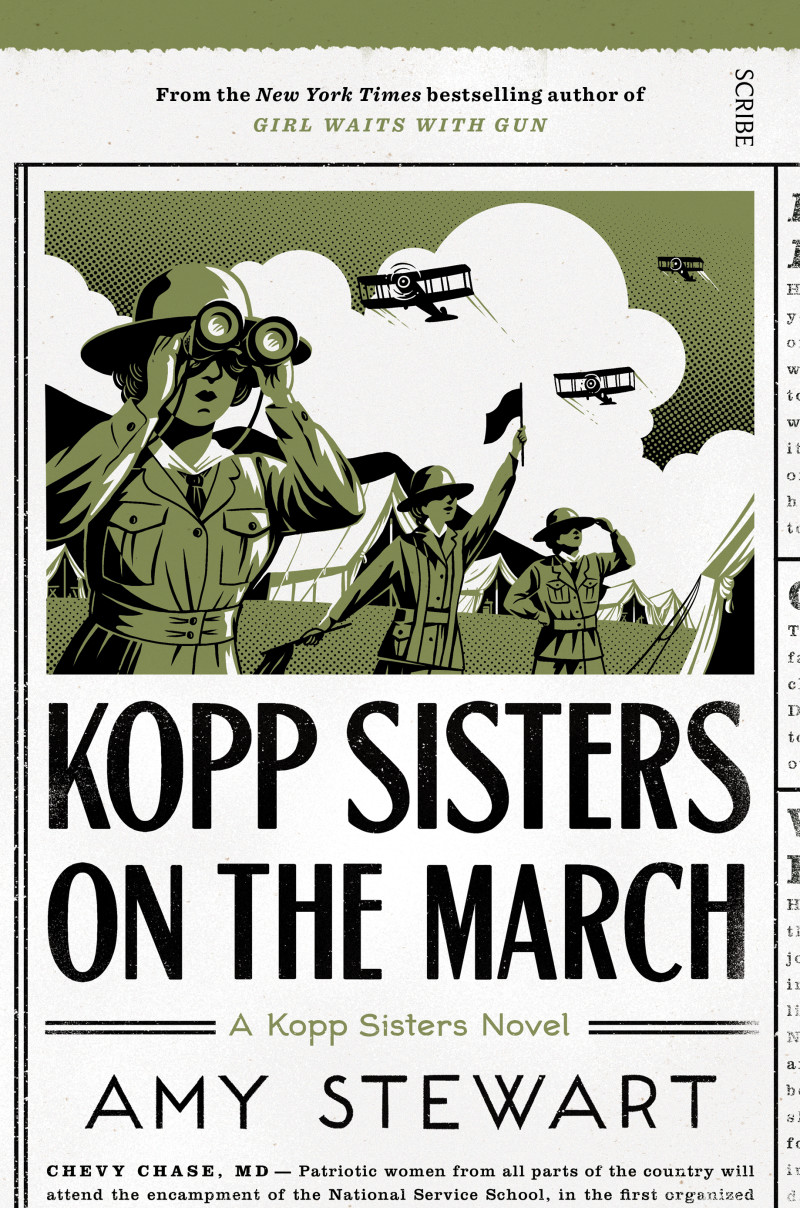Author: Amy Stewart
Publisher/Year: Scribe/2019
Publisher description
It’s 1917, and the US Army is marching to join its allies in the First World War. Constance Kopp and her sisters may not be soldiers, but that doesn’t mean they can’t do their bit. All over America, women are banding together to create military-style training camps, and so the Kopp sisters leave their farm in New Jersey to learn some army discipline.
In Kopp Sisters on the March, the women of Camp Chevy Chase face down the scepticism of the War Department, the double standards of a scornful public, and the very real perils of war. Once again, Amy Stewart has brilliantly brought a little-known moment in history to light.
Reviewer: Jane E Lee
Have you met the redoubtable Constance Kopp? If not, you’re missing a marvellous treat.
In the years before World War I, Kopp, a real historical figure, was one of the first female sheriff’s deputies in the United States. That alone would make her remarkable – but her backstory is remarkable too.
Kopp was recruited to law enforcement by Sheriff Robert Heath of Hackensack, New Jersey, after she showed exemplary courage and presence of mind in helping to capture and build a case against two men who threatened and tried to extort money from her family.
Kopp’s story begs to be told – it had been forgotten (something that never happens to notable women…) until Amy Stewart, author of several non-fiction works, chanced on a newspaper article about Kopp.
Luckily, Stewart plucked Kopp from undeserved obscurity and in the four previous books in the series, sticks close to the documented record of Kopp’s life, from the events which brought her to public notice to her dismissal by a new sheriff less visionary than Heath.
In Kopp Sisters on the March, Stewart departs from the known facts of Kopp’s story and sets her adventures against the backdrop of actual historical events.
In the lead-up to the war, National Service camps were set up to prepare women for support roles in the coming conflict. Stewart imagines Kopp and her sisters, Norma and Fleurette, at one of these camps, and crossing paths with real-life figure, Beulah Binford.
Binford, who was nationally vilified over her tangential involvement in a murder, becomes a key focus of the narrative. Like the Kopp sisters, Binford is not known to have attended a camp, but events which bring her there, told in flashback, are based on the historical record. Binford’s story is heartbreaking, her imagined inner world pitch perfect.
Like Kopp and, to a lesser extent, Norma and Fleurette, Binford is at real risk – emotionally and otherwise – as the story progresses. The pacing is so expert that, waiting to see what happened to all four, I couldn’t put the book down.
Kopp the historical personage must have been extraordinary but Kopp the fictional creation is magnificent. She’s clear-eyed about the obstacles to living life on her terms,but forges ahead anyway. We could all do with a dash of Constance Kopp in our psyches.
Kopp Sisters on the March is set in 1917, and Kopp lived till 1931.
Let’s hope Stewart can draw enough material from the intervening years for many more books to come.
